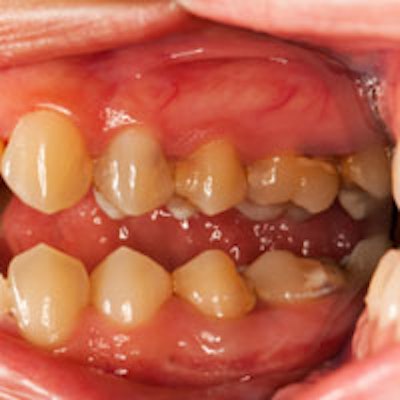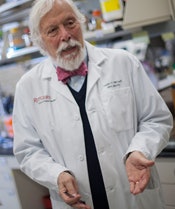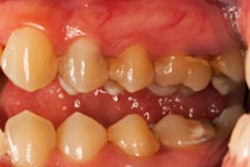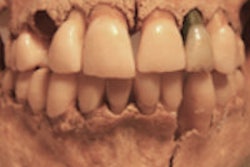
Researchers at the Rutgers School of Dental Medicine will study a rare form of periodontitis that affects African-American children. A $3.2 million National Institutes of Health (NIH) grant will be used to pinpoint biological markers in saliva that can predict before there are symptoms whether bone loss will occur from the disease and which teeth it will affect.
 Daniel H. Fine, DMD. Image courtesy of Rutgers School of Dental Medicine.
Daniel H. Fine, DMD. Image courtesy of Rutgers School of Dental Medicine.Oral biologist Daniel H. Fine, DMD, and colleagues at Rutgers dental school have tracked more than 2,500 children in Newark, NJ, since 2007 to chart the progression of localized aggressive periodontitis, a rare form of periodontitis, that has a high rate of prevalence among African-American adolescents. The disease has a genetic basis and affects 2% of African-American children ages 11 to 17.
During earlier NIH-funded research, the Rutgers researchers discovered that a cluster of three microbes found together can help diagnose the disease with 98% accuracy six to nine months before signs are apparent. This research will focus on early detection of potential bone loss.
As localized aggressive periodontitis only attacks central incisors and molars, it can result in disfiguring tooth loss and difficulty eating among children of African descent who often have limited access to dental care, according to the researchers.
"This is a health disparity issue that has an impact on members of the African-American community that can ill afford to lose teeth and suffer the consequences from either a psychological or sociological vantage point,'' Dr. Fine said in a statement. He is chair of the dental school's oral biology department and associate dean for research in the Graduate School of Biomedical Sciences.
“If we focus on these children, it gives us an opportunity to dissect the factors that lead to bone loss and help save their teeth.”
The dental school provides treatment for study subjects who develop the disease, to prevent infection and tooth loss. Dr. Fine's research on early diagnosis of the disease, which affects 70,000 U.S. children, may provide treatment for early interventions.
"If we focus on these children, it gives us an opportunity to dissect the factors that lead to bone loss and help save their teeth,'' he said.
During previous studies of local aggressive periodontitis, Dr. Fine's team found that children with localized aggressive periodontitis had a much lower rate of dental caries than other children, which is a result of these children's ability to produce a higher volume of a lactoferrin, an abundant salivary protein, which kills the bacteria that causes caries but has no effect on periodontal disease.
Previous studies by Dr. Fine led to the creation of a synthetic peptide that has the same caries-fighting effect. His team has also developed patents to improve the diagnosis and treatment of caries and periodontal disease.



















